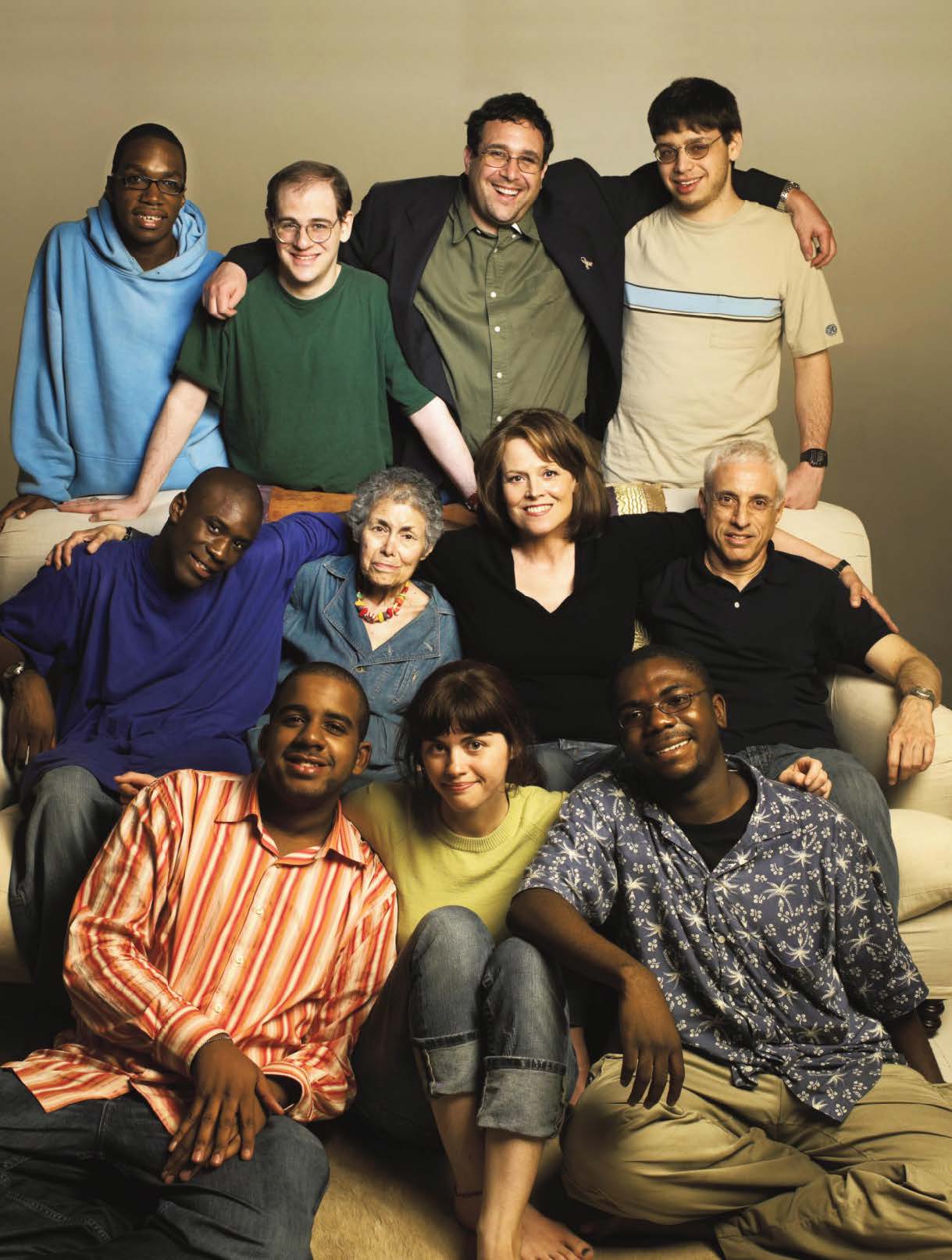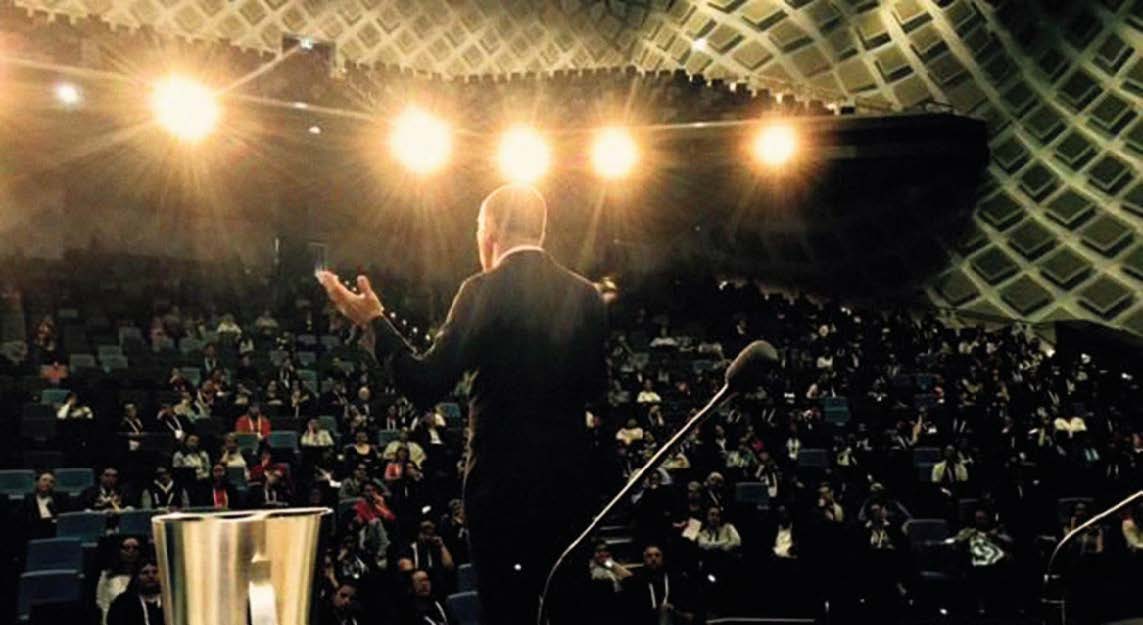
Instead of your child being firmly told that something they said was inappropriate, imagine someone tapping that child on the shoulder, and then instead, prefacing the lesson of inappropriateness with, "I've been there."
Parents! Does Your autism spectrum child's school Provide Peer Support…
From Spectrum Grownups?
We learned many moons ago that if an AfricanAmerican child is told "You have just as good a shot at the American dream as anyone!," that the child's ability to believe the statement will probably differ based on whether the successful grown-up saying this looks like the student (i.e. is a fellow African-American), or doesn't (i.e. he looks like me). We know pretty well that this also applies to folks whose heritage is Latino/a, Asian, visually-impaired… Well, why are schools – especially the so-called inclusion schools – so reluctant to acknowledge that this concept also applies to kids on the autism spectrum (if not all non-apparent disabilities)? And what can you, as a parent, do about it?
Background: Peer Support for the autism spectrum
Way back in 2003, I founded GRASP, which quickly became the world's largest membership organization for adults diagnosed any where along the autism spectrum. By the time I resigned in 2013, GRASP had 28 chapters across North America, and (based on what you consider a true member) anywhere between 8,000-21,000 subscribers worldwide. GRASP revolved around a replicable support group model wherein the facilitator had to have the same diagnosis as the attendees. We at the national office would help set up, and thereafter support these chapters.
At the time of my and my son's 2000 diagnoses, there were almost no support groups for spectrum adults in the US at all, and those that existed were run by clinicians, or by kindly family members. These groups were better than nothing, but they also left the attendees feeling either like patients, or as though they'd just spent time with someone similar to their mom, grandfather… etc. When I took over the family-run support group in 2001 (that would later become GRASP's 1st group), there were 6 attendees, and 15 people in circulation.
But once an individual on the spectrum was running the group, there was more trust from the participants. They felt more comfortable and revealed braver truths because they trusted that the facilitator would never shout them down for it. The result was shared experience, and within 18 months the attendees averaged 45, not 6 per meeting; and the number in circulation was over 440, not 15. "Peer support" is a concept that has worked for breast cancer survivors, returning war veterans…etc., but for many reasons had never before been tried with spectrumite grownups. But once GRASP began, adults on the spectrum learned a new definition of trust.
RISING UP: Actress Sigourney Weaver poses in 2008 with GRASP adult members and autistic students from the New York City Department of Education. "Because teenagers consider identity to be twice as important as grownups, the kids grabbed onto the concepts and rose out of their doldrums with a passion that blew their teachers' minds."

NEW VOICES: The author gives a keynote address in Sydney, Australia in 2017. "There are few of us doing this kind of work. But if it is not feasible to bring us in, your district can cultivate a local adult on the spectrum – one who's a healthy and happy human being – to do the job."
Trust, we have to understand, is not synonymous with love. Many of us might have had the professor who yelled at us, that we trust because they're brilliant, but whom we will never love. And on the other end, many of us have, for example, "the idiot brother-in-law" whom we love, but will never trust.
It is a hard lesson to hear that while your child might love you with all their heart, they might not trust you to the degree you imagine or want… until you have proven to them (not told them) that you understand how they think, and feel, and see.
In a personal example, I can even remember my mother, very clearly, when I was 8 years old or so, and I'd screwed up. She had some information that was really important for me to learn. But because she was so stressed out when she relayed the info to me (I clearly remember her panicked voice, and shaking face), and because she had not yet demonstrated that she got me… I disregarded her advice. All I saw was an overwhelmed person that I loved. And I can remember my thoughts as she was hammering me with the advice. "Mom, how's it working for you? How can I take anything you say seriously when you're such a mess?"
Luckily, mom was rarely a mess, and luckily, we all know that love is more important than trust.
And yet, parents have to understand, and not take personally, that when grownups don't understand our thinking, that mistakes can happen. When my generation was experiencing social problems with our peers, our parents would tell us, "Just be yourself." Was there WORSE advice for a spectrum kid in that situation?
Obviously, today's parents have it a lot easier because they not only know what their kids have, they're also better at recognizing that their kids will not logically interpret things the same way they do. Parents know that they need more information, and to rely less on their instincts. They also know that the secret to raising special needs kids doesn't only involve changing the lesson, it's the salesmanship of the lesson that also needs altering. But do schools understand this?
Schools
Just one year after GRASP was founded, in 2004, I was lured into the New York City Department of Education by some very progressive administrators of the time (in particular, one Shelly Klainberg) from the city-wide special education district known as District 75 (D75). They wanted me to try the same concepts out on teenagers, and I honestly wasn't sure it would work. But, holy cow, was I wrong. Likely because teenagers consider identity to be twice as important as grownups, the kids grabbed onto the concepts and rose out of their doldrums with a passion that blew their teachers' minds. Over and over again I heard staff say, "we never realized that talking about their diagnosis would be helpful…" and "because you're on the spectrum like them, they'll listen to you!"
I even set up and ran parent support groups for the District. Technically, this was not peer support for parents (even though I have a son who is also on the spectrum) – but parents are very often eager to hear what an adult on the spectrum says about their child on the spectrum, or the relationship they have with the child, so long as it is given in a supportive context. Parents were very grateful to the schools for those groups.
Prior to that time, everyone was fearful of using the word, "autism," in reference to their students. But once these teachers understood that it is not the label that ostracizes their kids from others, but rather the behaviors of the label… then they got it that it was better for the kids to know what they had. Without that knowledge, or that label ("autism"), kids wrongly assume that their struggles negatively revolve around their character.
But with knowing the word, they know the problems are about their wiring, not their character. In terms of emotional health and self-esteem, that is a biblical difference.
From there, I adapted the curriculum for younger and younger students at D75, and now that I'm not running non-profits, I implement this work in schools nationwide.
Go ahead: Be a cynic
Does bringing peer support into the schools sound like a cosmetic expense? An empty PR gesture? Or as a way to merely employ some spectrum folk like me? Baloney. I and the others who do this work save schools a bundle, and it's not because we're cheap. How?
• Out of district placements. Many districts, if they feel they cannot handle the "problem child" in a way that is safe for everyone, will sometimes give up on inclusion and ship the child to an outside school that only handles behaviorally-challenged children. These transfers to high-tuition centers cost districts anywhere between $32,000-$358,000 a year per child, and nationwide, there are 330,000 special needs students whose care costs over $100,000. If we can significantly help make the relationship work, and keep that kid in the district, we've saved the school a lot of money, kept the child in a more inclusive learning environment, and pumped the districts' reputation for inclusive practices through the roof.1,2
• The prevention of lawsuits. Each school district will spend anywhere between $20,000-$240,000 per lawsuit – and that's even if the district wins. Lawsuits won by the plaintiffs can result in the forfeiture of millions of dollars.3
• Preventing teacher turnover. Frequently I've consulted for schools that needed me to conduct buildingwide, morale repair jobs amongst staff… rather than work with specific kids or staff. Well, an average turnover costs districts $7,500, teacher turnover on average costs districts $54,000 per year, and overall, American schools fork over $2.2 billion on teacher turnover each year.4,5
• Ok, this last bullet point doesn't save schools money, it saves society money. Any time you take someone destined for institutionalized living, a group home, or supported housing, and increase their adult independence towards becoming a productive citizen? We all save. While I personally never promise any improvements in academics (my only professional concern is that students graduate as emotionally healthy, happy human beings), I will chime in the unsupported boast that such work of course improves academics. If peer support reduces anxiety, anger, and depression, then it therein increases their capacity for both emotional and physical regulation. No one can learn if they are not regulated.
But school districts outside D75, and outside New York – especially in the Midwest – still resist this knowledge. In my new home state of Wisconsin I've worked in two great districts (both in the Milwaukee area), but I also send out personalized emails to the hundreds of Wisconsin Special Education Directors every year (Hey, who doesn't want to work where they live?) and despite great references from every district I've ever worked in, I can count on two hands how many of those directors write back, even just to say "Thanks, but no thanks."
If peer support reduces anxiety, anger, and depression, then it therein increases their capacity for both emotional and physical regulation. No one can learn if they are not regulated.
(Granted, Wisconsin might be an unfair example as it has changed – for reasons that require another article – from a state with a rich, educational history, to becoming one of the most unimpressive school systems in the country. But Wisconsin is not alone in rejecting these new ideas.)
Why Wouldn't Schools Embrace Such Cost.Effective and Humane Innovation.
Several reasons:
• More than ever, public schools are under enormous, and often ridiculous pressure to perform for heavily-politicized school boards, reporting standards, and beyond clueless national entities (a la Betsy deVos). All of these counterforces pretty much reject innovative thinking as a rule. And in some communities, despite the rapidly rising special needs student enrollment, the school officials who wish to put forth the innovative strategies might even be mocked by public officials. (And if I sound too political herein, let me throw it back at you to say that anyone who politicizes education, health care… is sick [and I say that supportively By nature, these are bipartisan subjects that Americans have made political.)
• Private schools too, resist these notions, but for different reasons. Private schools, unlike public schools, are often far too responsive to parents, and as a result are too scared to introduce concepts such as these. Private school parents, we have to understand, have different realities, and they are infinitely more prone to feelings of "Don't respect my kid, FIX my kid!" than the often overwhelmed public school parents are. They hope their children learn to hate the diagnosis as they do. And while some pri vate school parents can be just as wonderful as some public school parents, private school parents are more prone to worries of "what will the neighbors think," as it has greater real or imagined consequences for them.
• There is a rather immature "Us against the world!" component to peer support, that many educators and parents are afraid of. But while this is of course a stepping stone that will need refinement on the way to emotional maturity, it's also an immensely healthy feeling that everyone needs to feel (about who they are) at certain parts of their lives.
• Given what we know about the aforementioned example using African-American kids and grownups… how many schools actually know even this? In New York, half the teachers I saw in schools were non-white. But in Wisconsin communities of color, I rarely see African-, Native-, Latin-, or Asian-American teachers.
• Backwards administrators – in both public and private education – who believe in all the aforementioned backwards thinking. They exist (Yup…especially in Wisconsin!).
Well, if the schools are reluctant, what can I do?
1. Special Education or Pupil Services Directors – public or private – listen to parents, even when new innovations threaten them. If they won't? Go above their heads to the Principal, the District Superintendent, or even the School Board.
2. Argue the concepts listed above, especially the money-saving aspects.
3. Access loads of evidence-based data from Peer Support Resources at psresources.info/the-evidence or these additional studies from the National Coalition for Mental Health Recovery, ncmhr.org/downloads/References-on-why-peer-support-works-4.16.2014.pdf
If the school official argues against peer support with the concern "What will my other staff think?", then ask to speak to the staff, so that you can ask them yourself if they really are offended by the notion of receiving advice from a consultant/peer support specialist on the spectrum. Are the staff really as bigoted as the administrator is implying? Probably not.
Maybe the official will argue that, "Our data says we're doing just fine, and the kids don't really need peer support." Lately, lots of districts try this as an effective counter to problem parents like you. Data, unfortunately is now being used to hide truths as well as to discover truths. Ask "data God," Nate Silver, and he'll tell you that very few people really know how to use data.
Still, schools love to play with "data." And in Wisconsin and perhaps elsewhere, they additionally love it because their political overseers don't understand data either, and will therefore sign off on it rather than admit that they don't get it. Data, the lesson herein states, sounds good.
So here's what you do in these data cases… ask them about the data. Ask to see not only the results (which they'll be happy to give you), but ask also to see how the data was collected, or how their study was conducted (herein they'll start to get a little nervous). I recently had conversations with a comical district near where I live in Wisconsin, who wanted me to assume that simply because they were working with data, they were God's gift to spectrum people. They told me that their data showed that parents were happy with the job they were doing.
So I asked about the parents that I knew were immensely and rightfully angry at them. Did those parents really partake in the 20-minute study? No, as it turns out, they were too angry to fill out the survey. Why would they give 20 minutes of their time to an entity they were furious with?
In the district's data, those families were all reflected in the "did not participate" numbers that the study reported. And if you took that column as mostly negative responses (instead of the implied neutrality), and slid it over into the "am not happy" column, then the story the districts' data told was shown to be a lie.
Conclusion
As I mentioned in the beginning, there are few of us doing this kind of work. But if it is not feasible to bring us in, your district can cultivate a local adult on the spectrum – one who's a healthy and happy human being – to do the job. And he or she can learn how to do it by studying the work, or the support groups of GRASP, as well as any organization that advocates for peer support. Your child deserves to feel good about him/herself. White people can't do it for kids of color the same way, and "neurotypicals" can't do it for spectrum kids the same way. And if that hurts the feelings of your school community, then they have a lot of catching up to do. It is not an insult.
Instead of your child being firmly told that something they said was inappropriate, imagine someone tapping that child on the shoulder, and then instead, prefacing the lesson of inappropriateness with, "I've been there." Such merciful, anxiety-reducing relief has been available to autism spectrum students since we started it all in 2001. Tell your school that it's time, and that Peer Support benefits everyone.•
ABOUT THE AUTHOR: Michael John Carley is the Founder of GRASP, a School Consultant, and the author of Asperger's From the Inside-Out (Penguin/Perigee 2008), Unemployed on the Autism Spectrum, (Jessica Kingsley Publishers 2016), the upcoming Book of Happy, Positive, and Confident Sex for Adults on the Autism Spectrum… and Beyond!, and the Huffington Post column, "Autism Without Fear." In 2000, he and his son were diagnosed with Asperger's Syndrome, and re-evaluated in 2014 under DSM-5, Carley was diagnosed with Autism Spectrum Disorder. For more information on Michael John, or to subscribe to his updates, you can go to michaeljohncarley.com
